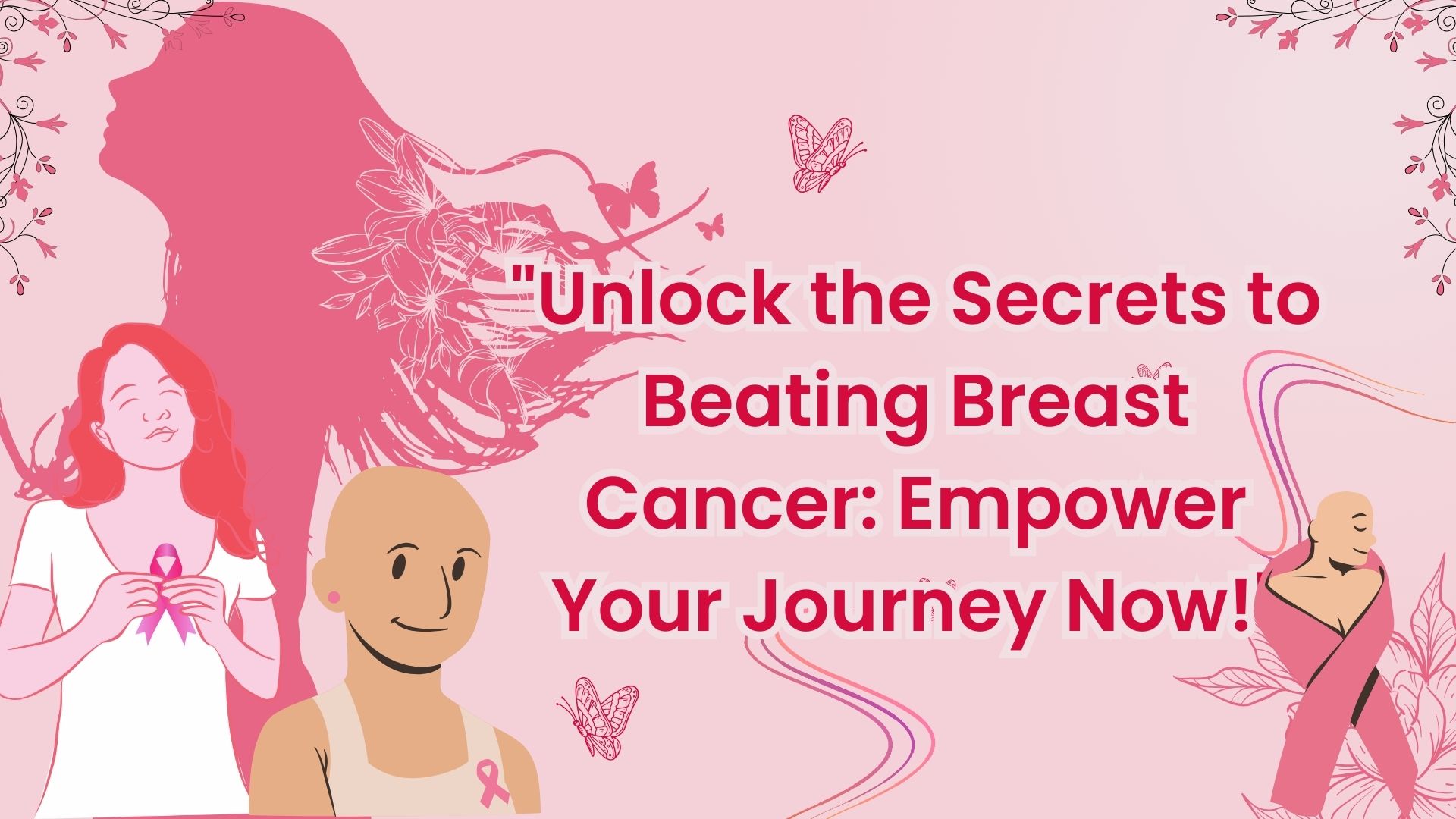Empower Your Journey: Unveiling Insights into Breast Cancer Prevention, Treatment, and Support 2024


Introduction:
Breast cancer is not just a disease; it’s a journey fraught with challenges, courage, and resilience. Impacting millions of lives worldwide, it demands empowerment, knowledge, and proactive healthcare strategies. In this comprehensive guide, we delve into various facets of breast cancer, from prevention to treatment and support, offering insights and strategies to empower those navigating this challenging terrain.
Understanding Breast Cancer:
A Comprehensive Overview Breast cancer originates from the abnormal growth of cells in breast tissue, encompassing diverse types such as ductal carcinoma in situ (DCIS) and invasive carcinoma. Recognizing symptoms like breast lumps, changes in breast appearance, or nipple discharge is crucial for early detection and intervention.
Empowering Prevention:
Strategies for Risk Reduction While certain risk factors like genetics are beyond control, lifestyle choices significantly influence breast cancer risk. Maintaining a healthy weight, engaging in regular physical activity, and consuming a balanced diet rich in fruits, vegetables, and whole grains can mitigate risk factors associated with breast cancer.
Early Detection Saves Lives:
The Imperative of Screening Regular screenings, including mammograms and clinical breast exams, are paramount for early detection and improved treatment outcomes. Personalized screening plans, tailored to individual risk profiles and age groups, optimize detection efforts and facilitate timely intervention.
Breaking Down Treatment Options:
Tailored Care for Each Patient Breast cancer treatment encompasses a spectrum of modalities, including surgery, chemotherapy, radiation therapy, targeted therapy, and hormone therapy. Treatment plans are tailored based on cancer type, stage, molecular characteristics, and patient preferences, with the aim of optimizing outcomes while minimizing side effects.
Navigating the Emotional Terrain:
Coping with Diagnosis A breast cancer diagnosis evokes a myriad of emotions, including fear, anxiety, and uncertainty. Prioritizing emotional well-being and seeking support from loved ones, mental health professionals, or support groups can aid in navigating the emotional complexities of the journey with resilience and strength.
Life After Treatment:
Embracing Survivorship Survivorship marks a phase of adjustment and renewal post-treatment, characterized by physical and emotional challenges. Addressing concerns such as fatigue, body image issues, and fears of recurrence through survivorship programs, healthy lifestyle choices, and peer support facilitates the transition to life beyond cancer.
The Power of Advocacy:
Raising Awareness and Driving Change Advocacy initiatives play a pivotal role in raising awareness, promoting early detection, and advancing research efforts in the fight against breast cancer. Participation in advocacy organizations, fundraising events, and storytelling amplifies voices and catalyzes positive change within the breast cancer community.
Exploring Treatment Remedies and Precautions:
Recent advancements in breast cancer research offer promising treatment avenues, including immunotherapy and targeted therapies. Additionally, lifestyle modifications such as dietary changes, stress management techniques, and complementary therapies may complement conventional treatment approaches, enhancing overall well-being and quality of life.
Real-life Cases:
Understanding the Impact Examining real-life cases, such as that of Rinky Chakma, underscores the profound impact of breast cancer on individuals and families. While some individuals bravely navigate the journey to remission, others succumb to its challenges, highlighting the importance of awareness, early detection, access to quality care, and ongoing support.
Holistic Approaches to Supportive Care:
Enhancing Well-being In addition to conventional medical treatments, holistic approaches to supportive care can play a valuable role in enhancing overall well-being during and after breast cancer treatment. Practices such as yoga, meditation, acupuncture, and massage therapy have been shown to alleviate treatment-related side effects, reduce stress, and improve quality of life. Integrative oncology programs, which combine conventional medical treatments with complementary therapies, offer a holistic approach to cancer care, addressing the physical, emotional, and spiritual needs of patients.
Emerging Trends in Breast Cancer Research:
Promising Directions The field of breast cancer research is constantly evolving, with ongoing efforts to improve treatment outcomes and enhance our understanding of the disease. Recent advances in genomics, immunotherapy, and targeted therapies have led to groundbreaking discoveries and promising treatment approaches. From precision medicine initiatives to novel drug developments, researchers are working tirelessly to revolutionize breast cancer treatment and pave the way for personalized, targeted therapies tailored to individual patients.
Addressing Disparities in Breast Cancer Care: Ensuring Equity Despite advancements in breast cancer treatment and care, disparities persist in access to screening, diagnosis, and treatment, particularly among underserved and marginalized communities. Socioeconomic factors, cultural barriers, and systemic inequities contribute to disparities in breast cancer outcomes, highlighting the urgent need for comprehensive strategies to address health disparities and ensure equitable access to quality care for all individuals affected by breast cancer.
Empowering the Future Generation: Education and Awareness Education and awareness are key pillars in the fight against breast cancer, empowering individuals with knowledge about risk factors, early detection methods, and available resources. Comprehensive breast health education programs in schools, workplaces, and communities can promote early detection, encourage proactive healthcare behaviors, and reduce stigma surrounding breast cancer. By fostering a culture of awareness and empowerment, we can equip future generations with the tools and resources needed to make informed decisions about their breast health and well-being.
Conclusion:
Empowering Hope and Resilience Breast cancer embodies a journey of empowerment, resilience, and hope, characterized by the collective efforts of individuals, healthcare providers, advocates, and communities. By embracing prevention strategies, prioritizing early detection, exploring treatment options, nurturing emotional well-being, and advocating for change, individuals can navigate this journey with strength, determination, and unwavering support. Together, let us empower one another to overcome obstacles, celebrate victories, and envision a future where breast cancer is conquered through knowledge, action, and solidarity.






